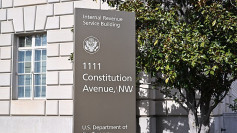The Supreme Court unanimously decided on Tuesday in favor of a deaf student who sued his public school system for providing an insufficient education. The ruling has implications for other disabled students claiming their school officials failed them.
Miguel Luna Perez attended public school in Sturgis, Michigan, where his lawyers claimed that the school system neglected him for 12 years and misled his parents about his progress, permanently impairing his ability to communicate. The justices determined that after settling a complaint against the school system, Perez and his family could seek monetary damages under a separate federal law. Justice Neil Gorsuch noted in his eight-page opinion that the case "holds consequences not just for Mr. Perez but for a great many children with disabilities and their parents."
Perez's communication abilities remain limited after emigrating from Mexico at age 9. His lawyers argue that the school system failed him by providing an aide who was untrained to work with deaf students, did not know sign language, and left him alone for hours in later years. Perez did not learn any formal sign language, instead using invented signs that were incomprehensible to those unfamiliar with his unique signing.
Although the school awarded Perez inflated grades, his parents believed he was on track to earn his high school diploma. However, they were informed just before graduation that he only qualified for a "certificate of completion." Perez's family pursued claims under two laws: the Americans with Disabilities Act (ADA), which prohibits discrimination against disabled people, and the Individuals with Disabilities Education Act (IDEA), which guarantees a tailored, free public education for children with disabilities.
After settling the IDEA claims, the family sought monetary damages under the ADA in federal court. Lower courts ruled that Perez was barred from pursuing his ADA claims due to language in the IDEA, but the Supreme Court disagreed. Gorsuch clarified that nothing in the IDEA blocked his way.
Perez's lawyer, Roman Martinez, expressed his elation at the decision, stating that the ruling vindicates the rights of students with disabilities to obtain full relief when facing discrimination. Perez and his family now look forward to pursuing their legal claims under the ADA.






